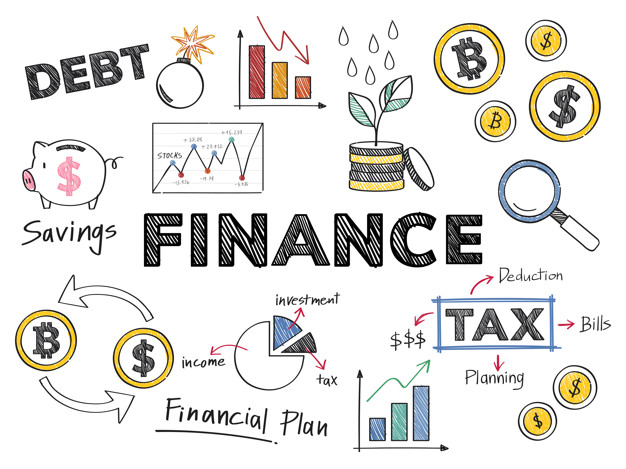If your business is in need of immediate funding, you might want to check out invoice financing. Invoice financing allows business owners to sell outstanding invoices at a discount to third party companies. This means that you don’t have to wait for 30, 60, or 90 days in order to get paid.
Business owners primarily use invoice financing to bridge the gap between accounts payable and accounts receivable. The funds can be used to pay for suppliers, purchase equipment, pay for unforeseen expenses, and other short-term needs. The terms and fees that come with invoice financing depend on the strength and credit of your customers since they’re the ones paying for the invoices.
There are different types of invoice financing, but invoice factoring and invoice discounting are the most popular.
Invoice Factoring
With invoice factoring, you sell your outstanding invoices to factoring companies. These companies will pay you 85% to 90% of the total invoice value up front. You’ll be able to receive the remaining 10% to 15%, minus a small fee, once the factoring company receives the full payment from your customers. Keep in mind that your customers are aware of the funding arrangement between you and the factoring company.
Invoice Discounting
Invoice discounting is very similar to factoring, except that your customers remain unaware of the dealings between you and the factoring company. You can advance up to 90% of the total invoice value, but unlike invoice factoring, you’ll be the one collecting payments from your customers.
 How Invoice Financing Works
How Invoice Financing Works
The process of invoice financing is relatively simple, but still, many business owners are not familiar with how it works. With that said, here’s a quick five-step guide to invoice financing:
1.Provide Goods/Services to Your Customer and Invoice Them
After providing the goods and services to your customers, you will then invoice them. The invoices have to be payable within 30 to 90 days in order to qualify.
2.Sell the Invoice to a Factoring Company
You can sell your invoices to the factoring company you want to wIf your business is in need of immediate funding, you might want to check out invoice financing. Invoice financing allows business ownersork with. The factoring company will determine whether you’re eligible to receive financing. Invoice financing is great for business owners with low credit scores. Factoring companies are more concerned with your customers’ credit rating since they’re the ones paying for the invoices.
Factors will usually conduct due diligence on your customers to see if they’re eligible. Once the factoring company approves your business, you will then sign a financing agreement stating the amount you can borrow, as well as the repayment terms.
3.You Get Paid by the Factor
Once you’ve sold your invoices to the factoring company, they usually give you 80% of the total value of your invoices. The amount they give you depends on your industry, the size of your transactions, and other risk parameters. Factoring companies usually send a ‘notice of assignment’ to your clients which states that they pay their dues directly to the factoring company. In other cases, factors may ask you to send create and send the notice. The payments your customers make will go directly to a lockbox account set up by the factoring company.
4.Your Customers Pay Directly to the Factor
Your clients should pay the factoring company within 30, 60, or 90 days, depending on the terms and conditions of the invoices. Generally, factoring companies handle the entire collection process – from payment reminders to collection. Some business owners are concerned about how factoring companies collect payments. However, factoring your invoices have no negative impact on your customers since factoring companies usually follow your collection process, unless the customer is past due date.
5.The Factoring Company Sends the Remaining Balance
The factoring company will give you the remaining balance, minus certain fees, once your clients pay their dues.
The Pros and Cons of Invoice Financing
Just like all types of financing solutions, invoice financing has its pros and cons.
Invoice Financing Pros
You’re never short on working capital. With invoice financing, you’ll never be short on cash. As long as you have outstanding invoices, you’ll be able to finance your business with invoice financing. It’s easier for your business to maintain a healthy cash flow since you won’t have to wait for months before getting paid.
There’s a higher rate of approval. Business owners with a not-so-desirable credit history choose to fund their business with invoice financing. Unlike traditional business loans, collateral, loan history, and credit score don’t matter as much. The invoices you sell act as collateral, so you don’t have to pledge any personal or business assets. As mentioned, factoring companies are more concerned with your customers’ credit rating rather than yours.
You can get funded ASAP. Another major benefit of invoice financing is that it provides immediate cash flow when you need it the most. It can take months before you can get approved of a traditional business loan. But with invoice financing, you can access funds quickly, ensuring that your business will continue to run efficiently.
Invoice Financing Cons
Your business may be held responsible for unpaid invoices. With invoice financing, business owners are usually responsible when customers default on their invoices. Factoring companies won’t waste their time tracking down late-paying customers. In some cases, you can trade a different invoice of the same value instead of paying with money.
Approval depends on your customers. Factoring companies aren’t too particular with your business’ history, but they’ll definitely pay close attention to your customers’ payment history. If certain customers have a bad payment record, you won’t be able to finance your invoices.
It’s relatively more expensive than traditional loans. Generally, factoring companies charge 1% to 5% of your invoice’s total value. Make sure to weigh your options before you consider invoice financing.
If you want to know more about invoice financing, the experts at SMB Compass can help you throughout the entire process. We’ve funded over a thousand small businesses in the United States and we’ll help you secure the loan you need as well. Don’t hesitate to give us a call at (888) 853-8922 or email us at info@smbcompass.com


